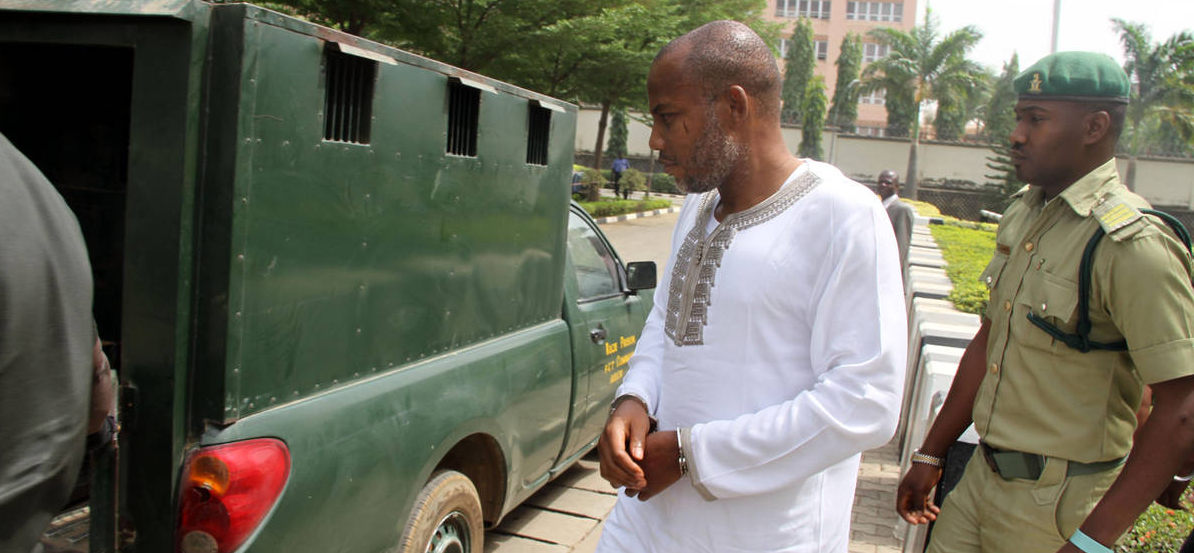Since the repatriation of Nnamdi Kanu, there have been conflicting accounts and speculations on how and from which country he was repatriated. However, the sketchy and largely ambiguous official account suggests his repatriation was through a covert operation.
A similar supposedly clandestine operation in 1984 to kidnap and repatriate Umaru Dikko from London failed due to the gross and inexcusable naivety of the Nigerian authorities then. Dikko was accused of unprecedented misappropriation of public funds when he was Minister of Transport under the previously overthrown civilian administration. He had, however, fled to London to avoid arrest.
- 5 killed, 4 injured in Lagos-Ibadan road accident
- When UN Dep Sec-Gen Amina makes case for transition to ranching
The then Nigerian military government engaged the Israeli intelligence agency, Mossad, for six million dollars to kidnap and repatriate him. The Nigerian authorities were apparently impressed by Mossad’s exceptional competence in transnational kidnapping and repatriation or assassination of its targets, which earned it its particular notoriety in this regard.
Interestingly, both the foiled operation to repatriate Dikko and the successful repatriation of Nnamdi Kanu were conducted during the Buhari administrations; the former was under the then General Buhari-led military regime while the latter was under the current Buhari administration.
Anyway, Israel was, however, mindful of the potentially serious repercussions of the operation on its close and strategic relationship with Britain, which it (Israel) couldn’t, and still cannot afford to jeopardize. At the same time, it (Israel) was courting the restoration of diplomatic relations with Nigeria, which the latter had severed in the wake of the 1973 Arab–Israeli War apparently in solidarity with Arab countries and Egypt in particular whose air force hugely assisted the federal troops during the Nigerian civil war in the 60s. It was therefore an opportunity for Israel to oblige Nigeria in the hope of winning it back.
By the way, even though the state of Israel is recognized by the United Nations, the circumstances of its creation explain the never-ending controversy over its legitimacy. Therefore, it has always been particularly interested in establishing diplomatic relations with as many countries as possible regardless of whether or not a country is of any particular significance to it.
Israel came up with a purported kidnapping and repatriation plan where Mossad undercover agents would grab Umaru Dikko in a supposedly quiet London neighbourhood, load him into a van and crate him along with an anaesthetist with two other Mossad secret agents in a separate crate making up a two-crate “diplomatic cargo” to be loaded into a waiting Lagos-bound Nigeria Airways plane at the London Stansted Airport.
However, there were many easily noticeable red flags all through the course of the operation. From, say, the dramatic grabbing and loading of Dikko into a van at a public place on the assumption that nobody would notice; the lack of appropriate clearance documentation for the “diplomatic cargo”; the refusal of the anxious Nigerian diplomat accompanying the crates to list them on cargo manifest; the unusual presence of a waiting Nigerian Airways plane at that particular airport, which had rarely if ever handled diplomatic consignments before as suggested by one Charles David Morrow, the Customs officer on duty who maintained that “no-one on duty at Stansted had dealt with a diplomatic bag before”, it was quite obvious that something fishy was playing out.
Besides, though according to the official account the operation was foiled thanks to a timely distress call by Dikko’s secretary who luckily happened to be at a place in his residence from where she witnessed his kidnapping from a window, the whole operation bore the hallmarks of a Mossad stage-managed incident.
The Mossad had probably wanted to kill two birds with one stone; to feign willingness to oblige hence impress Nigeria, on the one hand, and expose the operation to unavoidably imminent failure, on the other, to preserve the intactness of Britain’s goodwill towards it.
Also, though the incident triggered an unprecedented diplomatic face-off between Nigeria and Britain that escalated to the breakdown of diplomatic ties between the two countries and subsequent jailing of a Nigerian intelligence officer, Britain totally ignored Israel’s role in the incident.
Equally, while Umaru Dikko stepped up his criticism against the Nigerian government since the incident, he was advised by his British lawyers to never speak up about Israel’s role if he wanted to keep the support of the then British Home Secretary, Leon Brittan, a fanatic Zionist apologist. Dikko was thus blackmailed into ignoring Israel’s role while carrying on his campaign against the Nigerian government.
It was quite obvious that the UK’s Secret Intelligence Service (MI6) was part of the whole game either all along or from some point, which explained the hypocrisy of the British government in that regard. Its eventual sentencing of the three Mossad secret agents to various jail terms was understandable in the context of the typical modus operandi of intelligence agencies.
By the way, intelligence agencies keep some disposable secret agents who can easily be discarded or even sacrificed in due course, depending on the interests of their respective employers, after they must have been used to the maximum. The three poor Israelis involved in the so-called Dikko affair were probably some of Mossad’s disposable agents.
Now, though the Nigerian intelligence service is still below average efficiency-wise considering its performance in counterterrorism, Kanu’s repatriation suggests its evolvement over the decades.

 Join Daily Trust WhatsApp Community For Quick Access To News and Happenings Around You.
Join Daily Trust WhatsApp Community For Quick Access To News and Happenings Around You.


